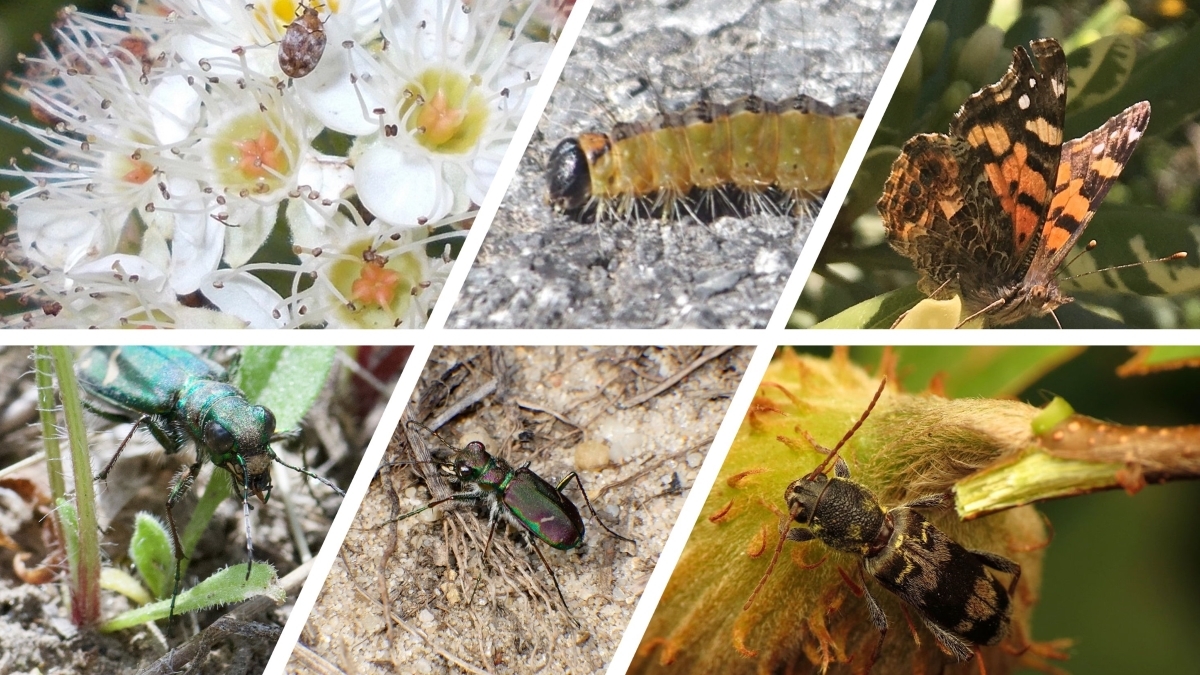
Researchers are developing artificial intelligence tools that use snapshots to help farmers identify pests and protect their crops. Larger image. Photo montage courtesy of Aditya Balu.
AMES, Iowa – Iowa State University researchers developing large, vision-based artificial intelligence tools to identify and eventually recommend controls for agricultural pests are one of the first teams to win computing support from the new National Artificial Intelligence Research Resource Pilot.
The award will provide the Iowa State researchers with one million "node hours" of supercomputing time on the $60 million Frontera supercomputer at the Texas Advanced Computing Center at the University of Texas at Austin. Frontera's power comes from more than 8,000 compute nodes, each containing 56 core processors. It's the fastest supercomputer based on a U.S. university campus.
The Iowa State researchers will use Frontera to help them train an ensemble of large machine learning models that can analyze photos to quickly identify agricultural pests, including insects and weeds. The models will be packaged into an app platform, which is designed to be deployed around the world to help farmers protect their crops.
Future work will include connecting the vision models with tuned, large language models to provide a conversational tool that can suggest pest-control strategies.
Baskar Ganapathysubramanian, the Joseph and Elizabeth Anderlik Professor in Engineering at Iowa State, is leading the computing project along with Aditya Balu, a data scientist at Iowa State's Translational AI Center. (See sidebar for a full list of team members.)
Ganapathysubramanian said the center's computing support enhances the research team's ability to train, deploy and evaluate sophisticated AI models that enable profitable and sustainable agriculture.
He made a presentation about the project during a launch event today in Washington, D.C., "Opportunities at the AI Research Frontier," sponsored by the White House Office of Science and Technology Policy.
During the event, the National Intelligence Research Resource Pilot, established in January as a two-year pilot program led by the National Science Foundation (NSF), announced the first 35 projects it will support by providing access to advanced computers.
Sethuraman Panchanathan, the director of NSF, said the pilot is "fueled by the need to advance responsible AI research and broaden access to cutting-edge resources needed for AI research."
At Iowa State, Ganapathysubramanian said researchers have been working on their approach for about two years with support from two federally funded efforts on campus. Those are AIIRA, the AI Institute for Resilient Agriculture; and COALESCE, COntext Aware LEarning for Sustainable CybEr-agricultural systems.
The original idea – conceptualized by Iowa State's Soynomics Team, a research team founded in 2014 that applies technology and data science to improve agriculture – was to build AI tools to identify diseases in soybeans.
Ganapathysubramanian said the idea evolved to include identification of insects harmful to soybeans, then agricultural pests across Iowa, then agricultural pests around the world.
"The scope has been slowly broadening," he said. "And so have the computing requirements to develop our model."
That's why the team submitted a proposal for one of the first awards from the national AI resource program. And, Ganapathysubramanian said, ever-growing computing requirements is why the team will make more proposals to the program.






